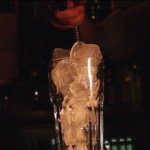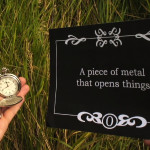Jean Cocteau’s Orphée An Opera by Philips Glass (2019) – A Theatre Review
Introduction
The history of cinema knows many characters and many hidden gems. One such character is a film director (also artist and writer) called Jean Cocteau. In a somewhat hidden part of film history, Jean Cocteau made big impressions on french cinema and the representation of magic on screen through his experimental and poetic films. Perhaps best known for his version of La Belle et La Bete, Jean Cocteau had his roots in Surrealism and film, and it was perhaps this that gave him his magical poetic edge in creating works of pure enchanting cinema; such as the overlap of art and cinema known as Orphée. One of his massive masterworks, Orphée told the story of a poet getting lost in an alternate world where there are guardians of death. To give a synopsis to this film is just to hint at its special quality. Perhaps it’s surprising (and perhaps not) but the haunting composer Philip Glass (known for Hollywood films like Candyman and Notes on a Scandal but also experimental arthouse films like Koyaanisqatsi) is composing the background for a ballet based on this great piece of cinema. Magical or just shocking?
To Dream a Theatre
Cocteau was known for his artistic spin on the cinematic process. Using its technical aspects to produce magical displays of realism or surrealism (film per chance to dream). So, it’d make sense that this auteur of French cinema would inspire such a dynamic work of cross media. Footage of Cocteau, re-enactments, lavish sets and intricate projections make up a dream like sense of what is and what can be. Who knew that the theatre could be so mutable. Dream-like and echoing throughout the stage to create a world before us that is constantly changing and flowing into what it could be suggesting. A mirror, a projection, a door! The atmosphere falls before us by theatre in the flesh.
Hearing Orphée
Without the score by Philip Glass, none of this would be possible. What might not have been an immediately apparent logic, Philip Glass manages to take you completely into the dream-like quality of mystery. Like descending down the rabbit hole, the harps and pianos are there but not there. The music guides the atmosphere through endless paths, transitions and effects. To match and gloss over the visuals and help the general dream that is present in front of us. Philip Glass made a wonderful effort in bringing it all together.
Conclusion
It is a massive wonder to behold. It could not have been so obvious to us, lest it had been right before our eyes. A work to be realised and transcribed unto theatre. It is a tough feat but they stab straight to the atmosphere – it’s magical. Orphée isn’t the most well known but it is a tough piece to translate to theatre. It is with form and with a realism that isn’t and is. The disguise of the film works its wonders, creates a dream, a magic, to fall for! How they got it to theatre, is just as overwhelming.
Further Reading
Philip Glass Compositions Orphée
Films Mentioned
Candyman (d. Bernard Rose USA/UK 1992)
Koyaanisqatsi (d. Godfrey Reggio USA 1983)
La Belle et La Bete (d. Jean Cocteau France 1943)
Notes on a Scandal (d. Richard Eyre UK 2006)
Orphée (d.Jean Cocteau France 1950)











Leave a Reply